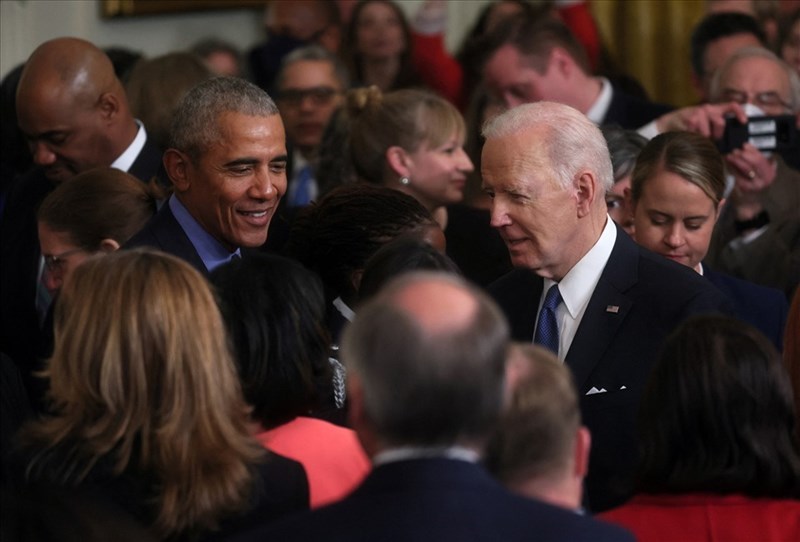Hungry Koreans sleep – VnExpress
Ji-Eun’s superiors often call to assign work in the middle of the night and ask for it to be completed immediately, causing her to stay in the office for many days until 3 am.
On days that aren’t too busy, Ji-Eun, 29, a public relations officer in Seoul, usually works from 7 a.m. to about 10 p.m. “I almost forgot how to relax,” shared Ji-Eun, adding that she had trouble sleeping.
Ji-hyeon Lee, a psychiatrist at the Sleep Clinic in the Gangnam district, southeast of Seoul, the South Korean capital, said she often encounters patients who have to take up to 20 sleeping pills a night. “It usually takes a while to fall asleep, but Koreans want to fall asleep quickly, so they choose to take medicine,” said Dr. Lee.

Korean people on a bus in Seoul 2018. Photo: AFP.
The situation of people addicted to sleeping pills is gradually becoming a big problem in this country. An estimated 100,000 Koreans are addicted to sleeping pills. In case they still can’t sleep, they often use alcohol and drugs, leading to dangerous consequences.
“Many people sleepwalk, they open the refrigerator and unconsciously eat and drink, including unprocessed food,” said Dr. Lee. “In central Seoul, there was a car accident caused by a sleepwalking patient.”
Dr. Lee has treated numerous chronic insomnia patients, some of whom slept no more than a few hours a night for decades. “They cried, but still held on to the hope of improving their sleep when they went to the clinic,” Lee said. “It’s really sad.”

People walk at Cheonggyecheon Stream, central Seoul, South Korea’s capital on February 28. Image: AP.
Koreans are one of the most sleep deprived groups in the world. The country also has the highest suicide rate, highest alcohol consumption among developed nations, and a large population of people using antidepressants.
In just a few decades, South Korea has gone from being one of the poorest countries in the world to becoming a leading technologically advanced country. With few resources, Korea transforms through the absolute dedication of its people, and the collective nationalism that drives them to work faster and harder.
This leads to the problem of Koreans being overworked, stressed, and sleep deprived. From that, the sleep aid industry thrives in the country, estimated to be worth $2.5 billion in 2019.
In Seoul, the chain of department stores favorably displays sleep products, from the perfect mattress to the ultimate pillow. Drugstores in Seoul also provide a full range of herbal supplements and sleeping pills.
The country is also developing technological approaches to the treatment of insomnia. In 2019, Daniel Tudor, a British journalist living in Seoul, South Korea, launched Kokkiri, a meditation app, to help young Koreans who are having trouble sleeping.
South Korea has historically been a Buddhist country, but its youth consider meditation a pastime for the elderly, not suitable for office workers. Daniel said he had to describe meditation as an idea from the West to appeal to young Koreans.

Koreans and foreigners participate in a short-term meditation course at Donghwa Temple, Gyeongsangbuk Province, southeastern South Korea, April 5. Image: Templestay.
Other traditional organizations also responded. Sister Hyerang Sunim runs the Temple Stay program on the outskirts of Seoul, which offers short-term retreats for sleep-deprived people to meditate and absorb Buddhist teachings.
These movements were previously only available to middle-aged retirees, but are now attracting a younger population of working age. However, these temples have also drawn some criticism for being “profitable from religion”.
“Of course there are concerns, but I think the benefits to everyone are greater,” said Ms. Sunim.
Lee Hye-ri, who attended a Buddhist retreat, said she learned to take responsibility for her stress. She came to the retreat due to work pressure. “Every problem starts with me,” Hye-ri said. “I learned it here.”
However, many people believe that lack of sleep should not be considered a personal problem. They believe that the root of this situation lies in a pressurized society where the work culture is irrational.
This group criticizes the above approach as blaming the victim, and asserts that the solution lies in social reform work, while the meditation movement only touches the surface.
Ji-Eun has decided to quit her job due to insomnia and prolonged stress. She now freelances with a more reasonable timeframe. She also went to Dr. Lee’s clinic to control her insomnia.
“What’s the point of working hard and making it part of the culture?” Ji-Eun asked. “We should have had a break.”
Duc Trung (According to BBC)
at Blogtuan.info – Source: vnexpress.net – Read the original article here



